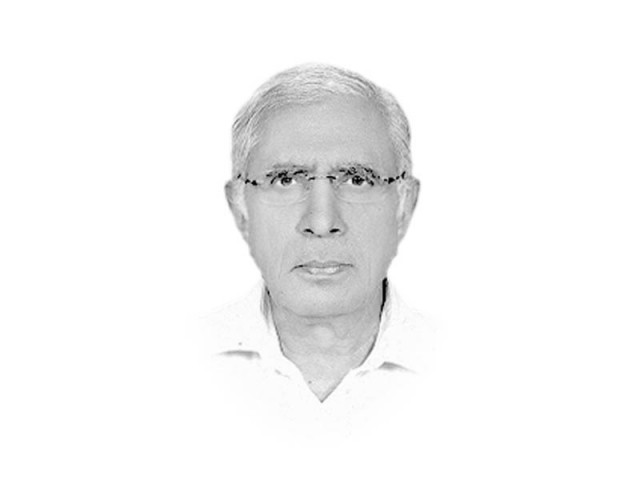A welcome development
Since Saarc charter forbids talks on bilateral issues, Hurriyat wouldn't mind if Pakistanis don't meet its leadership

The writer served as Executive Editor of The Express Tribune from 2009 to 2014
Media reports quoting diplomatic sources in Washington say that during his visit to India late last month, President Barack Obama urged Mr Modi to resume talks with Pakistan and also discussed his initiative with Prime Minister Nawaz Sharif. One recalls that President Obama had talked to Mr Sharif before embarking on his India visit. And it was soon after his call to brief Mr Sharif on his talks with the Indian leadership, that Mr Modi called his Pakistani counterpart to announce his change of heart. Perhaps, it was the budding US leverage in New Delhi that had made it possible for President Obama to overcome India’s opposition to Washington’s ‘mediatory’ role in what the latter calls an India-Pakistan bilateral issue.
Traditionally, whenever India and Pakistan met for talks at the official level, such meetings had been preceded by contacts between Pakistan and the Hurriyat leadership. Successive Indian governments have protested against such meetings but never made official bilateral talks conditional to Pakistan not meeting the Hurriyat leadership. By way of a goodwill gesture, Mr Sharif did not meet the Hurriyat leadership when he went to New Delhi in May last for Mr Modi’s inauguration, while Islamabad’s official position about this departure from tradition was that the visit was too short for such a meeting. It was, however, one presumed a deliberate and well-thought-out gesture that the new government in Islamabad was making towards the BJP’s incoming government in New Delhi, perhaps to prepare the ground for the resumption of peace talks leading to signing of the held-up non-discriminatory market access (NDMA) agreement that was concluded with the outgoing Congress-led coalition government.
But the BJP government, instead of reciprocating the goodwill gesture, cancelled the scheduled foreign secretaries’ meeting, protesting against our High Commissioner in India, Abdul Basit, who was meeting the Hurriyat leadership in the meanwhile. Mr Modi perhaps was at that time more interested in the upcoming elections in Indian-held Kashmir (IHK) and perhaps for the benefit of Jammu voters, had wanted to reinforce his image of being a person capable of putting Pakistan in its place. And coincidentally, fresh violation of the Line of Control had also started a month (October 2014) before the commencement of electioneering in IHK (November-December 2014). Mr Modi succeeded in his manoeuvres as he captured the second-largest number of seats (25 — all from Jammu — in a house of 87) against the PDP’s 28.
Now the compulsions of joining the coalition government in Srinagar — a long cherished goal — seems to have made the BJP agree to a minimum common programme (MCP) that perhaps includes the precondition of the senior partner, the PDP, that prior to government formation in Srinagar, New Delhi should resume the stalled talks with Pakistan for a meaningful resolution of the Kashmir dispute. Another precondition of the PDP for the BJP to qualify to join the J&K coalition government, according to Indian media, is that the BJP should agree to maintain the present status of J&K as it exists within the Indian Constitution, that is, not try to do away with Article 370.
It could be the compulsions of the MCP or perhaps a quid pro quo in return for Washington’s promise to lobby for a UN Security Council seat for India or perhaps, because of both that the BJP has agreed to resume foreign secretary level talks with Pakistan. However, perhaps to avoid the possibility of embarrassment in case Pakistan met with the Hurriyat leadership prior to next month’s talks, Mr Modi has camouflaged these talks as part of the Saarc dialogue. Since the Saarc charter forbids discussions of bilateral issues, Hurriyat perhaps would not mind if Pakistani officials do not meet its leadership before next month’s talks. India, on the other hand, could claim to have succeeded in finally forcing Pakistan to accept its condition of not keeping up with its tradition of contacting the Hurriyat leadership prior to official level bilateral talks. A pyrrhic victory, Mr Modi.
Published in The Express Tribune, February 18th, 2015.
Like Opinion & Editorial on Facebook, follow @ETOpEd on Twitter to receive all updates on all our daily pieces.













COMMENTS
Comments are moderated and generally will be posted if they are on-topic and not abusive.
For more information, please see our Comments FAQ